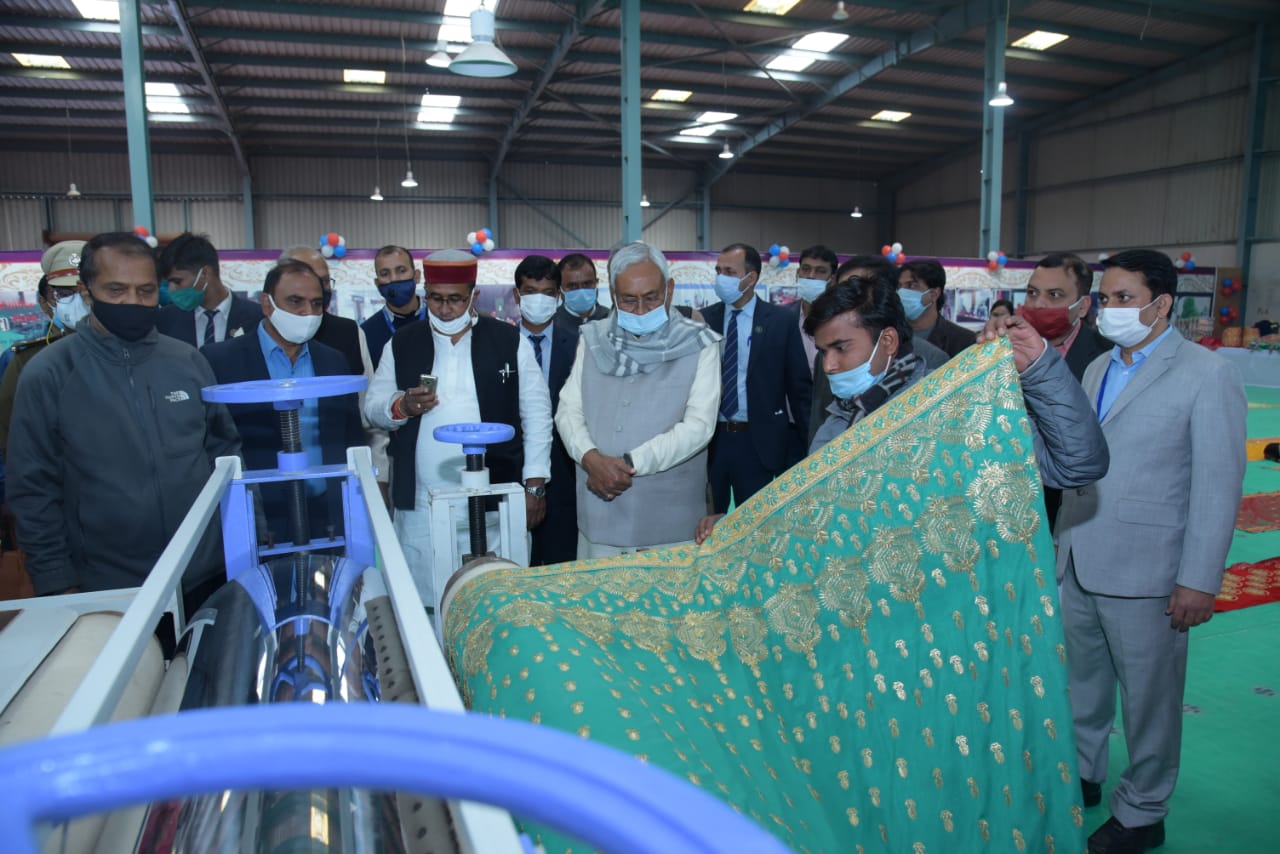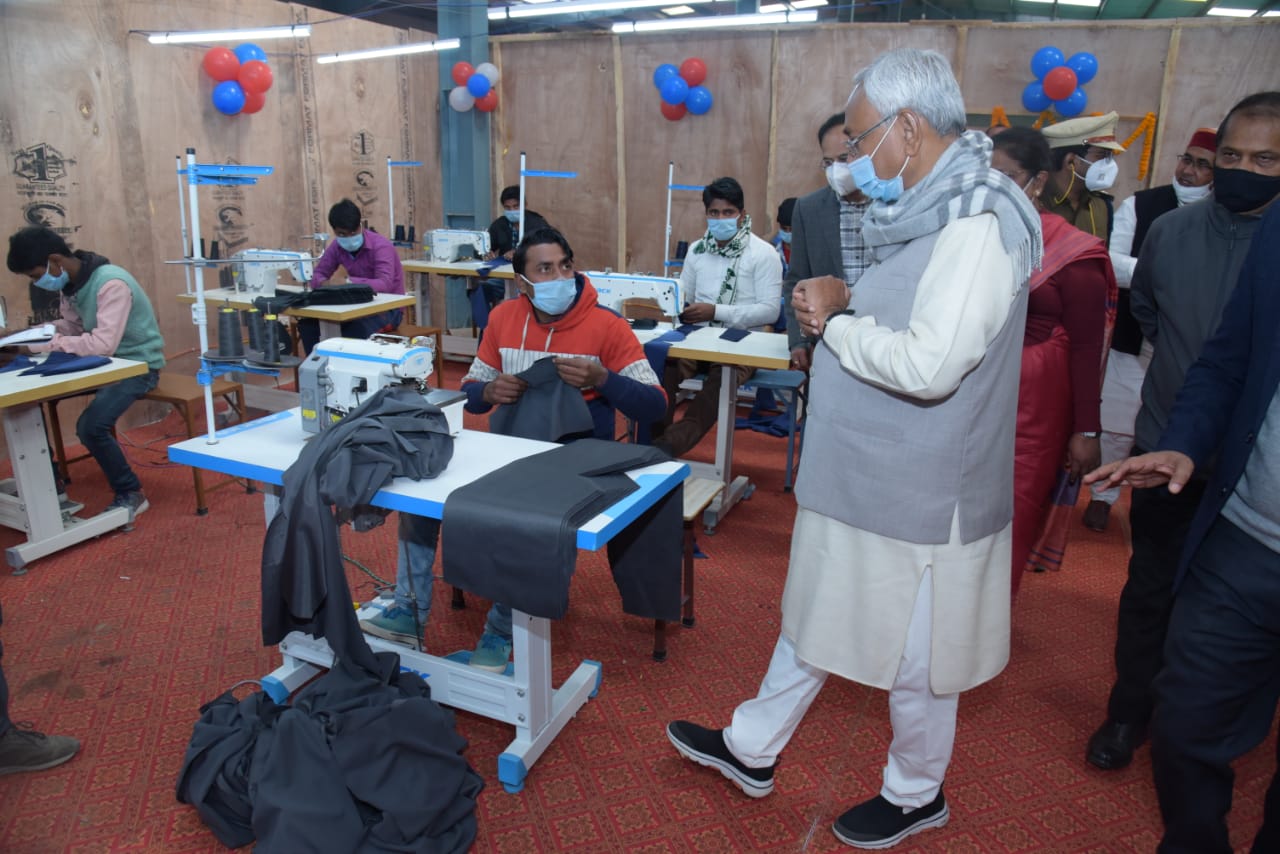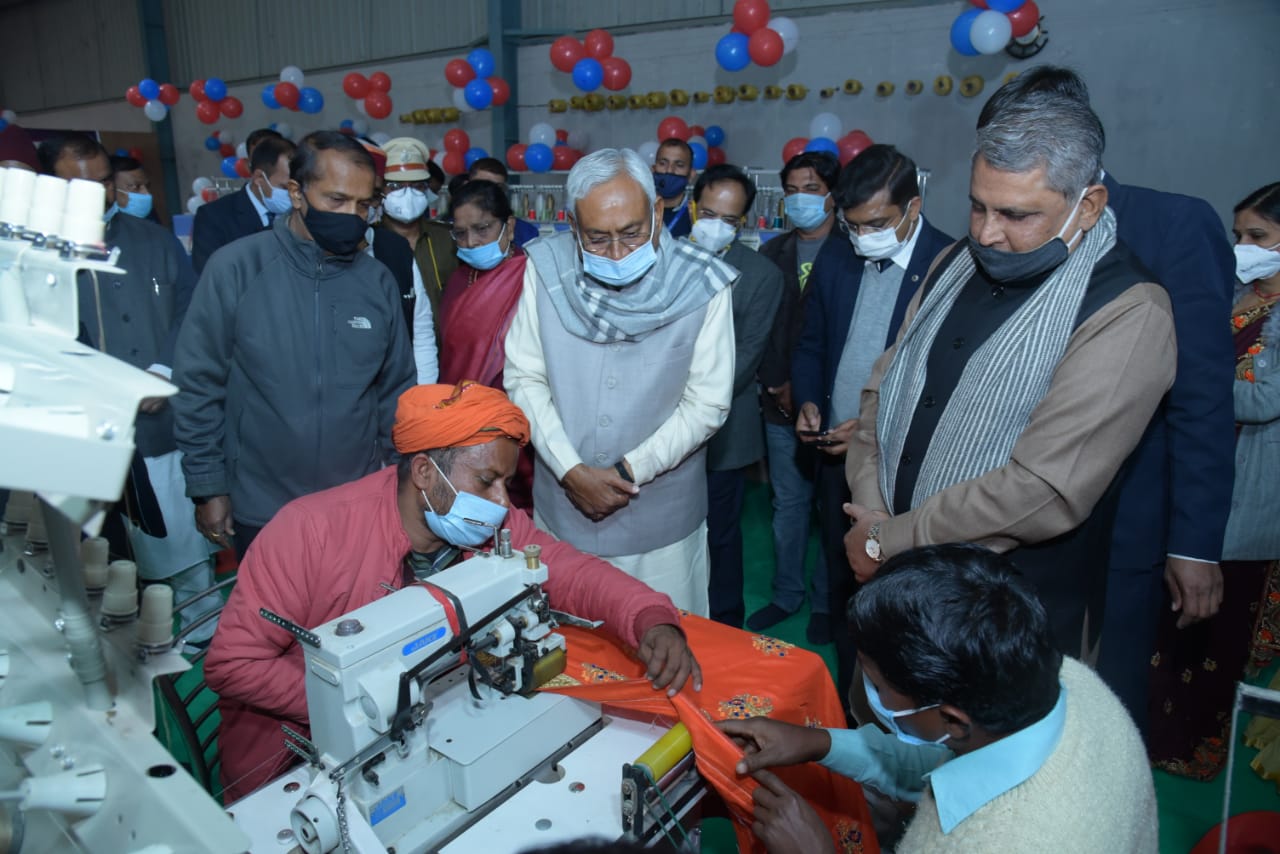The nationwide lockdown imposed due to the COVID-19 pandemic had a devastating impact on livelihoods. Among the worst affected were workers from Bihar employed in distant industrial centres like Surat, Ludhiana, Amritsar, Ahmedabad, Mumbai and Delhi. As factories shut down because of the lockdown, these migrant workers returned home.
Kundan Kumar, a 2012-batch IAS officer of the Bihar cadre who took charge as district magistrate of West Champaran only a month before the lockdown, had his work cut out. His administration would receive these workers, conduct health checks and put them in quarantine camps for 14 days, as per guidelines issued by the Bihar government.
According to the district administration, which has its headquarters in the city of Bettiah, approximately 80,000 workers returned home following the announcement of the nationwide lockdown. These workers were put into a series of quarantine camps propped up by the local administration.
“Before visiting these camps, the impression I had was that they were all simple labourers. But upon meeting them, I realised that many of these returnees were highly skilled workers with a good understanding of the latest technology in their chosen trade. These returnees knew all the verticals in the production chain and understood the market linkages associated with their respective trades. They were once the backbone of their respective industries in places like Surat, Ludhiana, Amritsar, Ahmedabad and Delhi, but had decided to come back home during the lockdown,” Kundan Kumar tells The Better India.
What transpired from these meetings with migrant workers was a grand vision, which addressed two key questions. Why not help the returning workers who specialise in trades like apparel wear, footwear, stainless steel or cricket bat making, find work in their home district? Since these workers were experienced hands in their respective trades, why not help them establish their own factories or plants here?
Nearly 10 months since he asked himself these questions, District Magistrate (DM) Kundan Kumar has established a “Startup Zone” in the town of Chanpatia, where 49 newly-minted entrepreneurs ply their trade today. These factory owners, who were once workers, are now employing fellow residents from the district. From the despair of losing their livelihood, people from this remote corner of Bihar bordering Nepal, have rediscovered their dignity.

Setting Up Enterprise
Before the returnee workers could leave the quarantine camps for home, the district administration sent all its officers to conduct a skill-mapping exercise for everyone there.
“We soon had a database of which migrant workers specialised in what trade. This was followed by the formation of these Udyami Mitra Mandals comprising 8 to 10 energetic returnees. Say, in a quarantine camp, there are 200 people. These returnees/Udyamis became points of contact for the entire camp, making it easier for us to keep in touch with them. Finally, the district administration proposed to them that they would help them establish their own industry here, giving them the option of working in their home district. They expressed a genuine desire to work here,” recalls Kundan.
Since these returnees understood the nitty-gritty of their respective industries, the administration asked members of Udyami Mitra Mandals to come up with detailed plans of how they will set up industry here, alongside the contact details of their previous employers, and the process of shipping the necessary manufacturing equipment there. Discussions between the administration and the returnees began sometime in July 2020.
“When the lockdown was announced, I had returned from Ludhiana. I used to run a small factory there that did fabrication work for big apparel brands. When the lockdown was announced, my factory ran out of business and the karigars [craftsmen] that I had employed went back to their respective homes. It was a difficult time and I had no idea what to do next except come back home to Bettiah. One day, however, I read a newspaper article talking about DM Kundan Kumar’s initiative for returning migrant workers like me. After reading the article, I sent a tweet to DM Sir explaining my situation and expressed my desire to set up a factory and work here,” says Shoaib Tahir, a Udyami, speaking to The Better India.
Shoaib goes on to recall how Kundan established contact over the phone. After returning home and fulfilling the quarantine requirements, he attended a meeting of Udyamis organised by the district administration.
“I have been in the apparel business for over 20 years now. At the meeting, we told DM Sir and other officials from the district administration about our respective trades — how we source raw material, what machinery was required and where our products would sell. We were asked whether any problems would arise in running a similar enterprise here. Our response was that we would face some problems initially, but it was nothing we couldn’t overcome,” says Shoaib.
But where would they set up these commercial enterprises?
The small town of Chanpatia, which is located 15 km away from the district headquarters, was chosen. In Chanpatia, two big godowns measuring 1,00,000 square feet were initially proposed as isolation centres for returnees.
But under the new initiative of the State government’s ‘District Industrial Innovation scheme’, the administration partitioned them and allocated space for each entrepreneur.
Besides these godowns, they would also partition other large government-owned structures in the vicinity. This entire cluster is now called the ‘Navpravartan Startup Zone, Chanpatia’ and it’s located on the Bettiah-Narkatiaganj road.

After these discussions, the district administration dedicated one officer to each Udyami (Entrepreneur) as their single point of contact for any sort of logistical assistance. Kundan spoke to different banks and financial institutions, for loans, and leveraged a series of government schemes to raise funds for these entrepreneurs.
“We roped in funds from schemes like the Prime Minister’s Employment Generation Programme (PMEGP), but this endeavour predominantly came under the umbrella of the Bihar government’s Zila Audyogik Navpravartan Yojana, a district industrial innovation scheme for returnees. A lot of financial support also came from public sector banks. On average, each entrepreneur received a capital of Rs 25 lakh,” claims Kundan.
Working in close partnership with the State government, the district administration is even offering logistical support to set up an electricity connection, help transport imported manufacturing equipment from other cities, etc.
“For example, if they need to ship some equipment from Ludhiana, the State government is taking care of 80% of the transport costs. Although some of them are arranging transport trucks, we are also working in close coordination with railway authorities. From Surat, for example, there is a direct train to Bettiah on the Awadh Express. So, we established contact with the railway authorities and they agreed to transport small containers comprising raw material, machinery, etc. This is cheaper than trucks. Meanwhile, the Bihar Industrial Area Development Authority (BIADA) is helping them by renovating a 15,000 square feet facility, offering one 60,000 square feet and two additional 3,000 square feet facilities which we will distribute to other upcoming entrepreneurs. The State government has also come up with another scheme offering them financial support up to Rs 10 lakh,” claims Kundan.

Entrepreneurs Employing Locals
By October 2020, the first 15 entrepreneurs were up and running. One of them was Shoaib, who opened his company called Lasani Fashion, which makes both gents’ and ladies’ wear.
“We opened shop here after getting our business loan sanctioned by the Central Bank of India thanks to DM Sir’s assistance. One of our first orders was for 40,000 tracksuits to a buyer in Ladakh. We are on the cusp of exporting 5,000 jackets to buyers in Spain. At present, my company employs nearly 50 people. But there are plans afoot to set up a washing plant here and another small plant for printing work on T-Shirts. In the coming months, I expect to employ close to 100 people. We are deeply thankful to DM Sir for what he has done for us,” says Shoaib.
Throughout our conversation, Kundan goes on to cite many other examples of thriving entrepreneurs. “Two brothers, Anand and Arvind, had shifted their entire factory setup for making stainless steel from Delhi to their home district. Today, they make utensils like pressure cookers, plates, tumblers, etc. There are many such examples,” adds Kundan.
Shivendra Nath Pandey, equipped with an MBA and LLM degree, returned from Delhi after the lockdown without a job. Today, he runs Champ Dignity, which makes sanitary pads. “I started this business about 20 days ago and have employed close to 50 women. In a day, we fulfil orders close to 1,000 sanitary pads. With the number of orders growing by the day, I’m looking to purchase another machine to enhance production,” he says. Meanwhile, Abulesh, who quit his job as a cricket bat maker in Anantnag, Kashmir, has teamed up with fellow migrant worker Lalbabu. Utilising the famous Kashmir willow, they run a manufacturing unit, which sells bats costing anywhere between Rs 800 and Rs 1,200.
Kundan claims that these 49 entrepreneurs have employed close to 500 locals in total, who are predominantly women. He goes on to add that within months of opening factories, these new entrepreneurs have sold goods and services worth approximately Rs 5 crore. Demand for these products largely comes from different states and neighbouring Nepal.

“They have grown from migrant workers to owners and their happiness is palpable because there exists a real sense of ownership. In the coming months, another 93 entrepreneurs will set up businesses, for which the administration will have to open up more space, offer subsidised electricity connections and address other logistical concerns. Among the 93 waiting in the wings, a few are setting up power looms here. This would reduce the cost of sourcing fabric for the existing apparel wear-making entrepreneurs. Irrespective of trade, most are following a bulk production model. For this initiative, we have received support from the State government,” says Kundan.
He adds that the contributions of Udyamis, the entrepreneurs who have come after them and the district officials to the creation of this startup zone cannot be underestimated.
“Members of these Udyamis have been working in their respective industries since the mid-1990s and possess an in-depth understanding of how things are done,” he says.
Calling them “fighters”, Kundan believes these entrepreneurs will overcome various obstacles along the way.
But the second wave of COVID-19 could pose some concerns, particularly when it comes to selling items to different parts of the country. “Nonetheless, the startup zone is the product of immense teamwork, and amid a crisis many Champaranwasis stepped up to make this happen,” notes Kundan.
(Edited by Yoshita Rao)
No comments:
Post a Comment